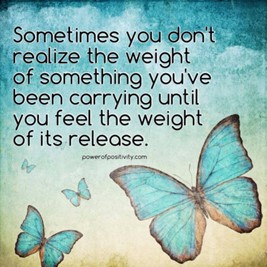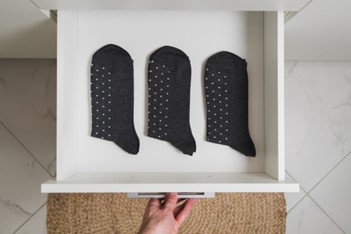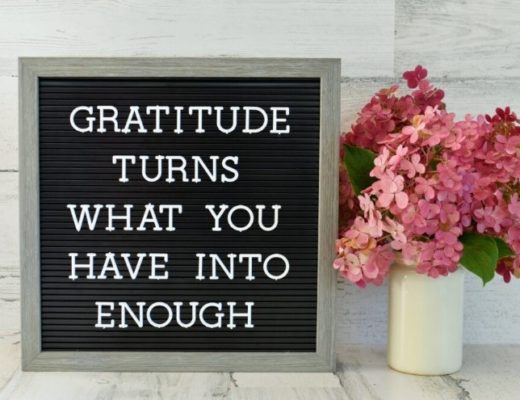YouTube Presentation: Most Important Coping Mechanism
Today we’re going to start the series in Chapter 9 with the most important coping mechanism. Coping mechanisms are one of the most important set of things you can do if you have problems with memory, and quite honestly you should start doing these things as soon as possible after you find out that you have dementia or even suspect you may have memory issues. (See What Now? In Dementia Talks)

Obviously, after you find you have dementia, there are some serious issues that run through your mind as you struggle with the loss of what you thought was going to be the rest of your life. In Dementia Talks we have a series of help under Getting to Acceptance that can help you on the bumpy road ahead.
You may be struggling with what does it mean to have dementia and hopefully for that reason you have turned to this episode or any of the prior ones. Hopefully, you have learned you can live positively and still have dementia.
But there is a catch!
Isn’t that the way it always is? Here it is… the ability to live positively is supported by a number of things that you need to do differently. Some of the most important habits you need to develop are “coping mechanisms”.
Coping Mechanisms
Coping mechanisms allow you to do what you normally do without expending as much mental energy as you did in the past.
That sounds simple, but they’re not always obvious. You could list all the things that you do in a day and probably still miss the one we’re going to discuss today.
We’re going to talk about one the most important Coping Mechanisms there is. When I talk to other people like me that have dementia that not only understand the value of living positively but they do it. This is still the most often missed Coping Mechanism than any other by far and yet it is the most important. Here it is.
Simplifying your Environment
“Simplifying your environment” is more than just being a Minimalist. Although minimization is one element of Simplification.

Minimalism is all about living with less. This includes fewer financial burdens such as debt and unnecessary expenses. … For many minimalists, the philosophy is about getting rid of excess stuff and living life based on experiences rather than worldly possessions.
Simplification is more than just reducing the amount of stuff you have although this is a key ingredient, but it is not the only part of simplification. Psychology Today identifies 5 ways to Simply Your Life as:
Here are five ways to simplify every area of your life.
1 – Declutter your house.
2 – Get rid of bad mental habits.
3 – Cut out toxic people.
4 – Take charge of your money.
5 – Gain control of your time.
Start Subtracting.
So, let’s talk about what Simplification actually means for someone with memory issues.
Any time we do something, we expend some level of mental energy. The more mental energy we expand the worse dementia feels, as we said in the last episode we are spending our chits.
Often, we have to exert mental energy simply because our environment is changing. The higher the degree of change the more we are going to spend mental energy, and the more the more often things change the worse off our day and maybe the next few days are going to be.
So, if you start looking at things in your life which create complexity, they should be the highest on the list in terms of addressing simplification.
The Problem… They’re not Obvious
Simple things can be at the root of the mental energy, or chits’ loss. Unfortunately, they are not always obvious. Worse, they literally can be right in front of you, but far too often we miss it.

Examples of simple complexity in everyday life.
If you go to your refrigerator and it has things in different places all the time and you are simply trying to find something and things are jammed back into wherever it fits, then quite frankly your brain has to spend a lot of energy to look through all the items and find what you’re looking for.
What is worse, you will need to understand another important fact about dementia called Tunneling.
Tunneling prevents you from seeing something accept those things which are right in front and you. Additionally, may not see the item that is right in front of you if it looks slightly different than what you thought it would look like, i.e., the jar of pickles has a red label versus a green label. For most people, we don’t even think about it.
Now consider the amount of mental energy you have to spend trying to find that jar of pickles. Just to see an item that is right in front of you. This is not only frustrating, but it contributes to losing a significant amount of mental energy that day.
It can be something very simple, right in front of us every day, and it creates such a huge problem. It takes the full cooperation of your partner or caregiver to address these things.
The next example is the bathroom if you have stuff all over or throw stuff in the drawer and you don’t have it organized then you are asking your mind to remember where you last put it, or you are going to have to look for it, either way your spending chits.
If you don’t keep things in the same place, then you can’t go to that drawer without spending mental energy to find your razor or your or deodorant or if you’re female and you’re looking for skin toner or something as simple as a toothbrush and toothpaste. If it is not stored in the same place, it may only create a small amount of mental effort to find it in the beginning phases of dementia, but as time progresses it will contribute to your sense of anxiety and lose of mental processing ability.
Develop New Coping Mechanisms Early
So, what is the answer? It is simple, clean out your drawers, get rid of anything that you don’t use or need. Look for things that you don’t need to help you create space for the things you do need. The more space the easier it will be to organize and find things.
Next, make where each item is stored a standard place, and you need to put it there from now on every day, that’s called building a habit.

Good Habits are the Key to Living Positively
Habits take far less mental energy than things we have to think about and they give us a sense of being in control.
We need to make changes to the things that affect us day in and day out. Changes that become habits, i.e., looking for your toothbrush or toothpaste, in always in the same spot.
We can apply the same logic to your clothing drawers and closet. Go through them, give to goodwill or whatever charity is your choice, anything that you don’t regularly wear, get rid of it. Keep your drawers and closet simple. Keep them organized. Always have things in the same spot. If you are not the one who does the laundry or if your caretaker does the laundry, they need to work with you to put things back in the same spot every day.
Next comes places that are even less obvious. Use the same philosophy for the less obvious places, like your office or some place that you go to work or crafts or watch TV. Maybe the place you use a computer. Any place you spend time needs to be a place that is simplified, organized, “clean out unused junk”.
Remember, things must always be put back in the same place that they were previously in.
My advice is to get rid of everything you can. The more stuff you keep, the more stuff you have to file away in your mind as to where things are.
Simplification requires you not only to evaluate whether you need it, but it must also be evaluated as to whether or not it’s in a spot that can be easily found, so that when you go to look for something it is easy to find.
There are countless other things which fit the same profile, it could be inside your car, if you’re not a person that keeps inside of your car neat. Here is the reality check. If you are not that kind of person that is neat and organized, you need to become that kind of person.
Start with things that need to be in a certain place all the time. Even if it is not simplified you now know that this is one less thing that you have to keep organized in your head.

For example, if you have a workshop it needs to be cleaned up and simplify. I personally was lagging on both the garage, my workbench and also the closet in my office, but they’re on my list of to-dos, they are big items to tackle but Rome wasn’t built in a day.
These areas are out of my day-to-day use, so consequently I don’t spend a lot of mental energy thinking about them, but the mere fact that I just mentioned to you that they need work means that I have not put them out of my mind.
The bottom line is there are certain mechanisms at work with dementia. One of those is the feeling of anxiety that comes from not being able to find things, or to spend energy looking for things in your mind that you normally believe you should be able to find
Second part is just sheer complexity.
Complexity requires greater mental energy. It also causes frustration and anxiety because of the tunneling effect when you are looking for something, it will be significantly worse with dementia.

Last, complexity itself doesn’t allow us to reduce those things which normally cause confusion. Because complexity is intimidating because of the size of the job and the energy necessary to get it under control. If this is what is keeping you from addressing these issues, have an open and honest conversation with your caregiver or family for help.
So, for these reasons, this is why I have listed complexity and simplification as the number one item you should address as a coping mechanism as soon after you’ve been diagnosed or even when you start to see memory challenges.
Having said that, this same approach can be used by lots of people whether or not they think they’re just struggling with aging, or they have another disease.
Certainly, if you have physical limitations having things in the same spot is going to be of great benefit to you no matter what.
But, focusing on dementia, I hope you can see why I listed this as the number one.
Next, we are going to cover a lot of other copying mechanisms.
I hope that you implement some of the things that I have covered here and put these suggestions into practice. They will really help you improve not only your day but your mental attitude and aptitude. If you have further questions, please leave them on Dementia Talks YouTube channel or on WanderingLite.com or Dementia Talks.net.
copyright 2022




No Comments